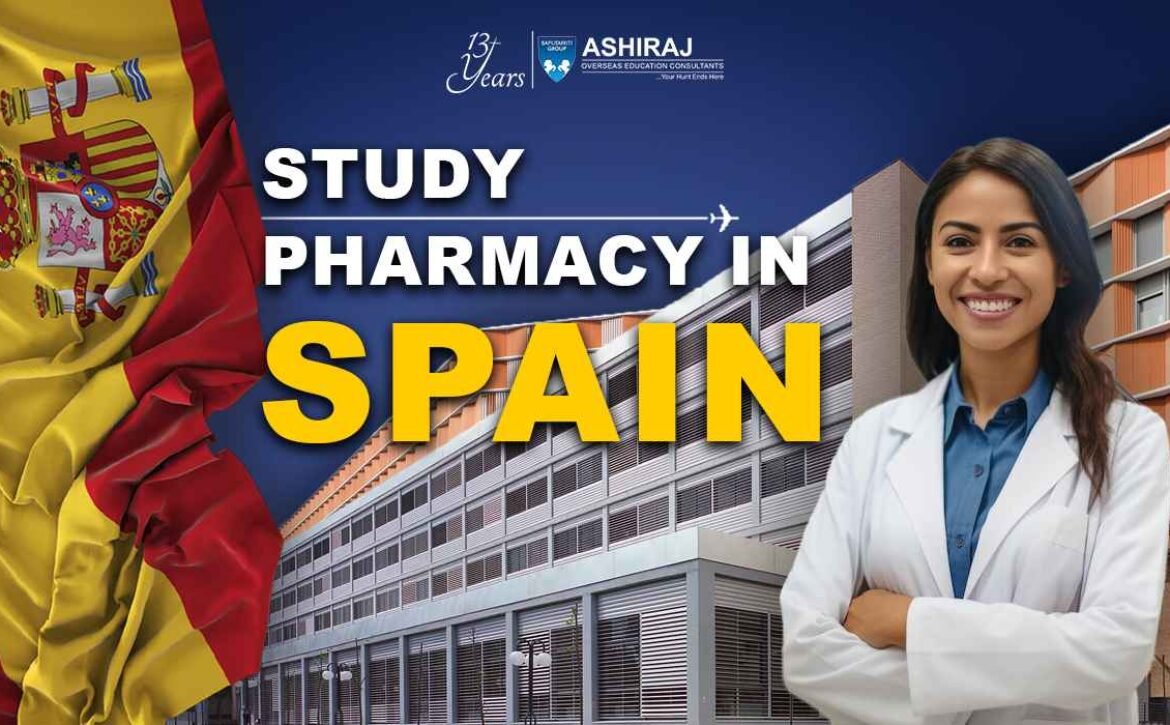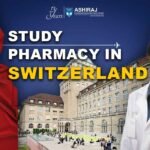
Pharmacy in Spain
Pharmacy in Spain is deeply rooted in the nation’s healthcare system, playing a pivotal role in providing accessible medication and health advice to its populace. Spanish pharmacies are not merely dispensers of prescriptions; they serve as vital community hubs where individuals seek counsel on health concerns, medication management, and preventive care. Pharmacies in Spain are governed by stringent regulations ensuring the safety and efficacy of medications, maintaining a high standard of pharmaceutical care across the country.
The landscape of pharmacy in Spain reflects a blend of traditional practices and modern advancements, adapting to the evolving healthcare needs of its population. With a strong emphasis on patient-centered care, Spanish pharmacists are integral members of the healthcare team, collaborating closely with physicians and other healthcare professionals to optimize patient outcomes. The accessibility and expertise offered by pharmacies in Spain contribute significantly to the nation’s healthcare infrastructure, ensuring that individuals receive quality pharmaceutical services tailored to their unique needs.
Why to Study Pharmacy in Spain?
- Diverse Educational Opportunities: Spain offers a range of educational programs in pharmacy, providing students with options to pursue degrees tailored to their interests and career goals.
- Advanced Curriculum: Pharmacy programs in Spain integrate cutting-edge research and practical training, equipping students with the skills and knowledge needed to excel in the field.
- Cultural Immersion: Studying pharmacy in Spain offers students the opportunity to immerse themselves in the rich cultural heritage of the country while gaining valuable international experience.
- Internationally Recognized Degrees: Pharmacy degrees obtained from Spanish universities are widely recognized and respected worldwide, enhancing career prospects globally.
- Clinical Experience: Students studying pharmacy in Spain have access to hands-on clinical experience through internships and practical training, preparing them for real-world practice.
- Multilingual Environment: Many pharmacy programs in Spain are conducted in English, making them accessible to international students and facilitating cross-cultural exchange.
- Innovative Research Opportunities: Spain is at the forefront of pharmaceutical research, providing students with opportunities to engage in groundbreaking research projects alongside renowned faculty members.
- Networking Opportunities: Studying pharmacy in Spain allows students to build a strong professional network within the global pharmaceutical community, opening doors to diverse career opportunities.
- Affordable Education: Compared to other countries, studying pharmacy in Spain is relatively affordable, with many universities offering scholarships and financial aid to international students.
- Quality of Life: With its pleasant climate, vibrant culture, and excellent healthcare system, Spain offers an exceptional quality of life for students pursuing pharmacy education.
Top Universities to Study Pharmacy in Spain
University | QS World University Ranking 2023 | Type of University | Average Annual Fees | Programs Offered |
University of Barcelona | 101-150 | Public | €1,000 – €3,000 | Bachelor’s, Master’s, PhD in Pharmacy |
University Complutense of Madrid | 151-200 | Public | €1,000 – €3,000 | Bachelor’s, Master’s, PhD in Pharmacy |
Autonomous University of Madrid | 201-250 | Public | €1,000 – €3,000 | Bachelor’s, Master’s, PhD in Pharmacy |
University of Valencia | 301-350 | Public | €1,000 – €3,000 | Bachelor’s, Master’s, PhD in Pharmacy |
University of Granada | 351-400 | Public | €1,000 – €3,000 | Bachelor’s, Master’s, PhD in Pharmacy |
Spain boasts several top-notch universities offering exemplary pharmacy programs. Here’s a list of the top five universities in Spain for Pharmacy, based on the QS World University Rankings 2023:
- University of Barcelona: Renowned for its academic excellence, the University of Barcelona offers a wide range of pharmacy programs at affordable fees.
- University Complutense of Madrid: With its high QS ranking, this public university in Madrid provides comprehensive pharmacy education at an accessible cost.
- Autonomous University of Madrid: Another esteemed public institution, this university offers pharmacy programs that are highly regarded both nationally and internationally.
- University of Valencia: Known for its strong emphasis on research and innovation, the University of Valencia provides exceptional pharmacy education at competitive fees.
- University of Granada: Rounding up the top five, the University of Granada offers quality pharmacy programs with a focus on practical skills development, all at an affordable price.
Course Curriculum for Pharmacy in Spain
- Foundation Courses: Pharmacy programs in Spain typically begin with foundational courses covering basic sciences such as chemistry, biology, and anatomy, providing students with a solid understanding of pharmaceutical principles.
- Pharmacology: Students delve into the study of drugs, their properties, mechanisms of action, and therapeutic uses, gaining insight into how medications interact with the body.
- Pharmaceutical Chemistry: This course focuses on the synthesis, analysis, and properties of drugs, equipping students with the knowledge to develop and analyze pharmaceutical compounds.
- Pharmacy Practice: Students learn about the practical aspects of pharmacy, including dispensing medications, patient counseling, and medication management, preparing them for clinical practice.
- Clinical Pharmacy: This course emphasizes the application of pharmaceutical knowledge in clinical settings, teaching students how to optimize medication therapy and collaborate with healthcare professionals.
- Pharmaceutical Technology: Students study the formulation and manufacturing of pharmaceutical products, exploring techniques for drug delivery and dosage forms.
- Pharmaceutical Biotechnology: This course covers the use of biotechnological techniques in pharmaceutical research and development, including genetic engineering and biopharmaceutical production.
- Regulatory Affairs: Students learn about the regulations governing the pharmaceutical industry in Spain and globally, ensuring compliance with quality and safety standards.
- Research Project: Many pharmacy programs require students to complete a research project or thesis, allowing them to apply their knowledge and contribute to advancements in the field.
- Elective Courses: Students have the opportunity to choose elective courses based on their interests, such as pharmacogenomics, clinical trials, or pharmaceutical marketing, enhancing their specialization in specific areas of pharmacy.
Eligibility Criteria & Admission Requirements for MS in Pharmacy in Spain
- Language Proficiency: Applicants are required to demonstrate proficiency in English or Spanish through standardized tests such as IELTS or TOEFL. A minimum score of 6.5 in IELTS or 80 in TOEFL is typically required.
- Standardized Tests: Depending on the university and program, applicants may need to submit scores for GRE or GMAT. The minimum required scores vary but generally range between 300-320 for GRE and 600-650 for GMAT.
- Academic Certificates: Applicants must provide proof of their academic qualifications, including transcripts and certificates from previous educational institutions. A bachelor’s degree in a related field is usually required for admission to pharmacy programs in Spain.
- Work Experience: While not always mandatory, relevant work experience in the field of pharmacy can strengthen an applicant’s profile. Some programs may require a certain number of years of professional experience.
- Passport & Student Visa: International students must have a valid passport and obtain a student visa to study in Spain. The visa application process typically requires proof of acceptance into a recognized educational institution and sufficient financial means to support oneself during the stay.
Test | Minimum Score |
IELTS | 6.5 |
TOEFL | 80 |
GRE | 300-320 |
GMAT | 600-650 |
Meeting the eligibility criteria outlined above is crucial for prospective students aiming to pursue pharmacy studies in Spain, ensuring a smooth application process and successful admission into their desired programs.
Documents Required for Studying Pharmacy in Spain
- Passport: A valid passport is essential for international students applying to pharmacy programs in Spain, serving as identification and proof of nationality.
- Letter of Recommendation (LOR): Applicants typically need to submit two or more letters of recommendation from teachers, professors, or employers, highlighting their academic or professional achievements and character.
- Statement of Purpose (SOP): An SOP is a personal statement outlining the applicant’s academic background, career goals, reasons for choosing pharmacy, and interest in studying in Spain.
- Curriculum Vitae (CV): A comprehensive CV detailing the applicant’s educational qualifications, work experience, research projects, publications, and any relevant extracurricular activities.
- Official High School Transcripts and Certificates: Applicants must provide transcripts and certificates from their high school or secondary education, demonstrating academic proficiency and completion of required coursework.
- Work Experience Certificate: If applicable, applicants should submit a work experience certificate verifying their professional experience in the field of pharmacy or related areas.
- Proof of Financial Resources: International students must demonstrate sufficient financial means to cover tuition fees, living expenses, and other costs during their stay in Spain. This may include bank statements, sponsorship letters, or scholarship awards.
Ensuring the timely submission of these documents is crucial for a successful application to pharmacy programs in Spain, facilitating the admission process and enrollment in desired courses.
Admission Process for Pharmacy in Spain
- Research: Begin by researching universities in Spain offering pharmacy programs and identifying those that align with your academic and career goals.
- Review Requirements: Carefully review the admission requirements for each university, including academic qualifications, language proficiency tests, and standardized test scores.
- Prepare Documents: Gather the necessary documents, including academic transcripts, standardized test scores (such as IELTS or TOEFL, GRE or GMAT), passport, letters of recommendation, statement of purpose, curriculum vitae, and proof of financial resources.
- Submit Application: Complete the university’s online application form and upload all required documents. Pay attention to application deadlines, as late submissions may not be considered.
- Wait for Response: After submitting your application, wait for the university to review your materials. This process may take several weeks to months, depending on the university and program.
- Interview (if required): Some universities may require applicants to participate in an interview as part of the admissions process. Prepare accordingly and demonstrate your enthusiasm for studying pharmacy in Spain.
- Receive Admission Decision: Once the university has reviewed your application, you will receive an admission decision. If accepted, follow the instructions provided to confirm your enrollment and arrange for any necessary visa documentation.
Following these steps diligently will enhance your chances of securing admission to a pharmacy program in Spain, paving the way for a rewarding academic experience in this vibrant country.
“Education is the most powerful weapon which you can use to change the world.”
Nelson Mandela
Cost of Pharmacy Course in Spain
- Tuition Fees: The cost of tuition for pharmacy programs in Spain varies depending on the university and program. Public universities typically have lower tuition fees compared to private institutions.
- Public vs. Private Universities: Public universities in Spain often offer more affordable tuition rates for both domestic and international students. Private universities may have higher tuition fees but may also provide scholarships or financial aid options.
- Average Annual Fees: On average, annual tuition fees for pharmacy programs in Spain range from €1,000 to €3,000 for EU/EEA students. Non-EU/EEA students may have slightly higher fees.
- Additional Expenses: In addition to tuition fees, students should budget for other expenses such as accommodation, transportation, food, health insurance, books, and personal expenses.
- Scholarships and Financial Aid: Many universities in Spain offer scholarships, grants, and other financial aid options to help students cover the cost of their education. These may be merit-based, need-based, or awarded for specific criteria.
Understanding the cost of studying pharmacy in Spain is essential for prospective students to plan their finances accordingly and make informed decisions about their education abroad.
Scholarships for Pharmacy Courses in Spain
Scholarship Name | Amount | Application Deadline |
Spanish Government Scholarships | Varies | Varies |
Santander Scholarships | Up to €5,000 | March 31 |
Erasmus+ Scholarships | Varies | Varies |
Fulbright Program | Varies | Varies |
La Caixa Foundation Scholarships | Up to €18,000 | Varies |
Scholarships play a crucial role in facilitating access to higher education, especially for international students pursuing pharmacy studies in Spain. Here are some prominent scholarships available:
- Spanish Government Scholarships: Offered by the Spanish government, these scholarships vary in amount and eligibility criteria. Deadlines vary depending on the specific scholarship program.
- Santander Scholarships: Sponsored by the Santander Group, these scholarships provide financial support of up to €5,000 to eligible students. The application deadline is typically on March 31st.
- Erasmus+ Scholarships: The Erasmus+ program offers a range of scholarships for international students studying in Europe, including Spain. Deadlines vary depending on the specific scholarship scheme.
- Fulbright Program: The Fulbright Program provides scholarships for students, scholars, and professionals to undertake study, research, or teaching in the United States and other countries. Application deadlines vary.
- La Caixa Foundation Scholarships: La Caixa Foundation offers scholarships of up to €18,000 to international students pursuing master’s or doctoral studies in Spain. Application deadlines vary depending on the specific scholarship program. Applying for these scholarships can significantly alleviate the financial burden of studying pharmacy in Spain.
Career Opportunities After Pharmacy in Spain
Job Profile | Average Salary (EUR) |
Community Pharmacist | €25,000 – €40,000 |
Hospital Pharmacist | €30,000 – €45,000 |
Clinical Pharmacist | €35,000 – €50,000 |
Pharmaceutical Researcher | €40,000 – €60,000 |
Regulatory Affairs Specialist | €35,000 – €55,000 |
Pharmacy in Spain offers a plethora of career opportunities for graduates. Here are some common job profiles and their average salaries:
- Community Pharmacist: Responsible for dispensing medications, providing healthcare advice, and managing pharmacy operations within a community setting. Average salary ranges from €25,000 to €40,000 per year.
- Hospital Pharmacist: Involved in managing medication therapies for hospitalized patients, collaborating with healthcare teams, and ensuring safe and effective medication use. Average salary ranges from €30,000 to €45,000 annually.
- Clinical Pharmacist: Works directly with patients and healthcare providers to optimize medication therapy, conduct medication reviews, and provide clinical pharmacy services. Average salary ranges from €35,000 to €50,000 per year.
- Pharmaceutical Researcher: Conducts research to develop new drugs, improve existing medications, and investigate pharmaceutical formulations. Average salary ranges from €40,000 to €60,000 annually.
- Regulatory Affairs Specialist: Ensures compliance with pharmaceutical regulations and guidelines, prepares regulatory submissions, and liaises with regulatory authorities. Average salary ranges from €35,000 to €55,000 per year.
With diverse career paths and competitive salaries, pursuing a career in pharmacy in Spain offers promising prospects for professionals in the field.
Frequently Asked Questions About Pharmacy in Spain
Admission requirements typically include academic qualifications, language proficiency tests (such as IELTS or TOEFL), standardized test scores (such as GRE or GMAT), letters of recommendation, statement of purpose, curriculum vitae, and proof of financial resources.
Yes, there are scholarships available for international students, including those offered by the Spanish government, universities, private organizations, and international programs like Erasmus+ and Fulbright.
The cost of studying pharmacy in Spain varies depending on the university, program, and whether the student is from the EU/EEA or non-EU/EEA country. On average, annual tuition fees range from €1,000 to €3,000 for EU/EEA students.
Career opportunities include roles as community pharmacists, hospital pharmacists, clinical pharmacists, pharmaceutical researchers, regulatory affairs specialists, and more, with average salaries varying depending on the position and experience.
While work experience is not always mandatory, having relevant experience in the field of pharmacy or related areas can strengthen an applicant’s profile and enhance their chances of admission.
Spanish and English are the primary languages of instruction for pharmacy programs in Spain. Applicants may need to demonstrate proficiency in one or both languages through standardized tests such as IELTS or TOEFL.
Pharmacy programs in Spain typically take four to six years to complete, depending on the level of study (Bachelor’s, Master’s, or Doctorate) and the university’s curriculum structure.
Yes, international students in Spain are allowed to work part-time during their studies, typically up to 20 hours per week. However, they must obtain a work permit and adhere to visa regulations.
Yes, many pharmacy programs in Spain include internships or practical training components, allowing students to gain hands-on experience in various pharmacy settings, such as community pharmacies, hospitals, and research labs.
International students must apply for a student visa at the Spanish consulate or embassy in their home country. They will need to provide proof of acceptance into a recognized educational institution, proof of financial means, medical insurance, and other required documents.




